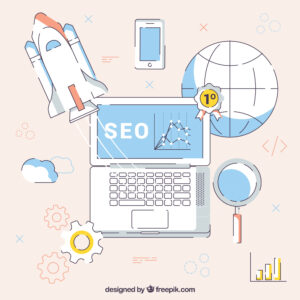Performance marketing has emerged as one of the most result-driven approaches in the digital world, where brands invest in measurable outcomes such as leads, conversions, and sales rather than just impressions or visibility. As consumer behavior continues to evolve, the competition for attention has intensified. To keep up, marketers are now turning to advanced technologies that enhance targeting, personalization, and efficiency. Among these technologies, artificial intelligence (AI) and automation stand out as transformative forces reshaping how performance marketing is executed.
Understanding the Shift in Performance Marketing
Traditional digital marketing relied heavily on manual campaign management and broad demographic targeting. Marketers often had to spend significant time analyzing data, adjusting bids, and testing creative assets. While this approach delivered results, it lacked the precision and agility needed in a fast-paced digital environment. With the rise of big data, machine learning, and predictive analytics, the industry is moving toward smarter and more efficient strategies. AI allows brands to analyze consumer behavior patterns at scale, while automation streamlines execution, ensuring campaigns run with minimal manual intervention.
The Power of AI in Targeting and Personalization
One of the most impactful contributions of AI in performance marketing lies in its ability to enhance targeting and personalization. Instead of relying solely on demographics, AI leverages behavioral and contextual signals to deliver ads to the right audience at the right time. Predictive algorithms can anticipate user intent based on browsing history, purchase patterns, and engagement signals, ensuring that campaigns resonate with high-potential customers.
Personalization has moved far beyond inserting a customer’s name in an email. Today, AI enables dynamic creative optimization, where ad creatives change in real time depending on who is viewing them. For example, an e-commerce brand can automatically display different product recommendations to two users visiting the same website based on their previous browsing behavior. This level of contextual personalization drives higher engagement and conversion rates, reinforcing the efficiency of performance-driven campaigns.
Automation in Performance Marketing
Automation in Performance Marketing has become a cornerstone for scaling campaigns efficiently while reducing manual workload. By automating repetitive tasks such as bid adjustments, ad placements, and performance reporting, marketers can dedicate more time to strategy and creative innovation. Modern advertising platforms, including Google Ads, Meta Ads Manager, and programmatic systems, have integrated AI-driven automation tools that optimize campaigns in real time.
For instance, automated bidding strategies can adjust bids for each impression based on the probability of conversion, ensuring that ad spend is used effectively. Automation also helps in audience segmentation, where large sets of data are quickly analyzed to create micro-segments with tailored messaging. This not only boosts performance but also minimizes wasted ad spend. The fusion of AI and automation ensures that performance marketing campaigns operate at maximum efficiency without sacrificing personalization.
The Role of Predictive Analytics and Attribution
AI-driven predictive analytics is another game-changer. Instead of relying on historical performance alone, marketers can now forecast future outcomes with higher accuracy. Predictive models can identify which audience segments are most likely to convert, which channels will perform best, and what type of content resonates with specific groups. This level of foresight empowers marketers to allocate budgets more strategically and design campaigns that anticipate customer needs rather than just reacting to them.
Attribution, a long-standing challenge in performance marketing, has also been enhanced by AI. Multi-touch attribution models powered by machine learning offer a clearer picture of how different touchpoints contribute to conversions. This helps brands understand the true ROI of their campaigns and make better investment decisions. Without AI, attribution often remains fragmented and incomplete, but with machine learning, marketers can analyze vast amounts of cross-channel data to identify the real drivers of performance.
Enhancing Customer Experience with AI Chatbots and Virtual Assistants
Beyond ads and targeting, AI has significantly influenced customer engagement. Chatbots and virtual assistants now play an important role in performance marketing strategies. These tools provide instant customer support, personalized product recommendations, and seamless checkout experiences. For example, a chatbot integrated into an e-commerce store can engage a visitor in real time, answer queries, and even offer discounts to encourage purchase. Such real-time engagement not only increases conversions but also improves customer satisfaction, a vital factor in sustaining long-term performance.
Data Privacy and Ethical Considerations
While AI and automation offer tremendous opportunities, they also bring challenges related to data privacy and ethics. The growing scrutiny of how consumer data is collected, stored, and used means marketers must ensure compliance with global regulations such as GDPR and CCPA. AI-driven personalization must strike a balance between relevance and respect for user privacy. Consumers today are more conscious of their digital footprint, and maintaining trust through transparent practices is as important as achieving conversions.
The Growing Role of Education and Upskilling
As AI and automation continue to redefine performance marketing, there is a growing need for marketers to upskill and stay ahead of technological trends. Many professionals are now investing in specialized learning programs to master AI tools, analytics, and automation strategies. For those looking to gain practical expertise, enrolling in an Online Performance Marketing Course can provide structured learning on how to integrate AI-driven automation into real-world campaigns. This not only equips marketers with advanced skills but also ensures they can adapt to the evolving landscape with confidence.
The Future of AI and Automation in Performance Marketing
Looking ahead, the role of AI and automation in performance marketing is set to expand even further. Hyper-personalization, real-time analytics, and voice-search optimization are likely to dominate future strategies. AI will not only predict consumer behavior but also adapt campaigns instantly based on contextual signals such as location, device usage, and even environmental factors. Automation will advance to the point where marketers may act more as overseers, focusing on strategy and creativity while machines handle execution and optimization.
The convergence of AI, automation, and human creativity represents the future of performance marketing. Brands that embrace these technologies early will gain a competitive edge, enjoying increased efficiency, stronger customer engagement, and higher ROI. However, success will also depend on responsible implementation that respects data privacy and ensures meaningful customer experiences.
Conclusion
AI and automation are no longer optional tools in performance marketing—they are essential drivers of success in an increasingly competitive digital environment. By enhancing targeting, streamlining execution, predicting outcomes, and improving customer interactions, these technologies are reshaping how marketers achieve measurable results. Automation in Performance Marketing reduces manual effort while maximizing campaign efficiency, while AI ensures that personalization and predictive insights are at the heart of every strategy.
Marketers who invest in learning, adapting, and responsibly applying these innovations will not only stay relevant but also lead the way in shaping the future of digital advertising. As the industry continues to evolve, one thing remains clear: the fusion of AI and automation with performance-driven strategies is the key to unlocking scalable, sustainable growth.






